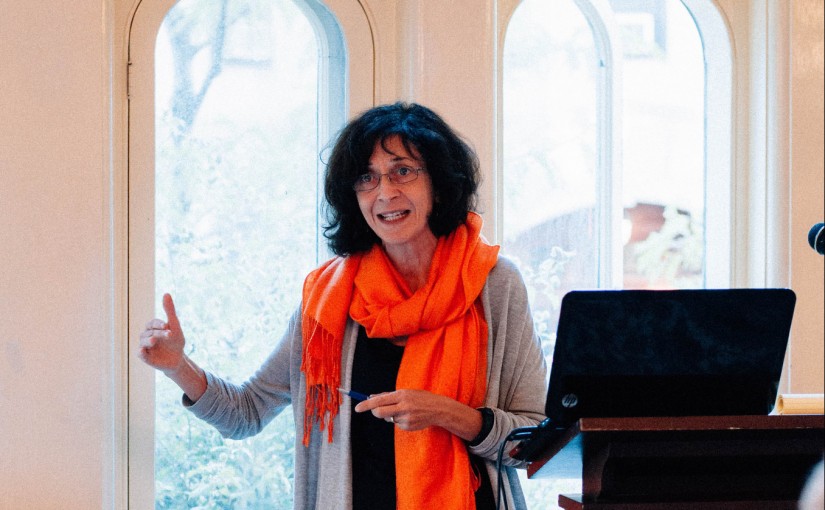I have been teaching EU Law in the United States, mostly at the Law School of Boston University, every year since January 1993, i.e. since the inception of the European Union. I have therefore witnessed the legal development of the Union for over two decades and made it a point to keep the subject of EU Law on the map of American legal education. It is now increasingly difficult to make room for a course on EU Law in the course catalog of American law schools. Following the economic recession ushered in by the 2008 financial crisis, law course offerings have increasingly focused on domestic subjects and clinical experiences. It takes advocacy, funding, and unwavering excellence in the classroom to be allowed to keep the course on the JD catalog.
Under the auspices of the Jean Monnet Chair, it is my intention to continue to focus on EU Law Studies and to build on the efforts of my institution in this field.
I have recently been appointed Chair of the European Law Section of the Association of American Law Schools (AALS) with the explicit mission of enhancing the visibility of the field in North America and boosting the network of EU Law scholars in the US. For the same reason, I have taken a very active role in the European Union Studies Association (EUSA), participating in three panels and one round table in the 2015 EUSA Conference (Boston, March 5-7). In addition, I have regularly supervised EU Law research projects of visitors of the BU Center for the Study of Europe and of the Harvard Institute for Global Law and Policy.
I have been serving as adviser of the Boston University International Law Journal (“BU ILJ”) for many years and have supervised countless papers variously related to the project of European Legal integration. Building upon the interests of the BU ILJ students, I have also spearheaded a number of EU Law workshops, such as one on the Euro-Crisis in 2011 (Panelists: Profs. Vivien Schmidt, Boston University; Philomila Tsoukala, Georgetown Law School; Maria Panezi , York University, Osgoode Hall Law School).
As Chair of the European Law Section of the American Association of Law Schools, which meets yearly in January, I will be in charge of organizing a panel of US law professors regularly teaching and writing about EU Law. The proposed theme for January 2016 is ‘Human Rights at the Margins: The Refugee Crisis and Other Emergencies in a Transatlantic Perspective’ (discussant: Prof. Grainne de Burca, New York University Law School; main speakers: Professor Steve Peers, University of Essex, UK; Professor Daniel Halberstam, University of Michigan). The proceedings of this panel should be published by the Boston University International Law Journal.
In line with the Jean Monnet Chair requirements, I will be devoting no less than 90 hours of classroom instruction to EU-Law related matters, while continuing to teach US Contracts Law in the fall semester (with brief references to the Draft Common European Sales Law). See Teaching for details.
Having written extensively on the private law of the internal market, I am now increasingly interested in the external dimension of the EU’s commerce. I plan to focus on EU trade law on two fronts. The first one concerns the Transatlantic Trade and Investment Partnership, currently under negotiations. I have begun working on a co-authored piece (with Prof. F. Nicola) on the difference between background rules (on contract enforcement, product liability, regulatory takings, and alternative dispute resolution mechanisms) in the EU and the US. The article explains at how many levels such rules complicate the path towards a functional transatlantic trade partnership.
The second focus of my research is outlined in an article I just completed: Trade and History (BU Int’l L J 2015, with J. Geneve). This one concerns the distributive impact of trade agreements between the European Union and former colonies or territories of the member states. With particular attention to the case of Algeria, the article identifies important discrepancies between the recipes for development contained in the European Neighborhood Policy and the effect of trade arrangements between Algeria and the EU over time. Such trade arrangements, since the time of Algeria’s independence, have arguably hindered the diversification of the Algerian economy and therefore complicated the picture of spatial disparity. Wine in the 1960s, textiles in the 1980s, and most recently clean energy initiatives provide examples of this phenomenon. The case of Algeria sets the stage for my future research, concerning the EU’s southern neighborhood. Methodologically, my inquiry on the distributive effect of the EU’s mercantile policies in the Mediterranean will connect economics to history; will examine the evolution of the field of law and development as an academic discipline and as a set of policy prescriptions since the inception of the EEC; will look into the law and politics of negotiations specific to each country and each EU-association agreement; and will require collection of quantitative data. The plan is to turn this research into a book and to host a related symposium in 2018.
